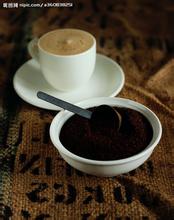Fragrant and authentic Salvadoran Coffee Manor flavor and taste characteristics of Renas Manor
Frente Farabundo Mart í parala Liberaci ó n Nacional, the ruling party. In October 1980, the "Farabundo Marty people's Liberation Army", the "National Resistance Forces", the "people's Revolutionary Army", the Central American Labor Revolutionary Party and the Communist Party of El Salvador jointly formed an armed front against the government. In January 1992, the Front signed a Peace Agreement with the Government and became a legitimate political party in December. In June 1995, all parties within the Front uniformly formed the "Farabundo Marti National Liberation Front" party. Three elections were lost in 1994, 1999 and 2004, and the party's candidate Funes won the presidential election in March. By January 2016, the party had about 120000 members.
The National Republican Alliance (Alianza Republicana Nacionalista), the main opposition party. It was founded by Roberto D'Abuisson in September 1981 and officially registered in January 1982. He was in power from 1989 to 2009.
Sanchez Salem is president of El Salvador. He was born on June 18, 1944 in Xattepec, El Salvador. After graduating from Alberto normal School, he taught in a primary school in his hometown for 10 years. He participated in the creation of the first left-wing armed force in El Salvador, the Farabondo Marti people's Liberation Forces, in 1970 and became general secretary of the organization in April 1983. Since then, the organization has joined forces with other left-wing political and military groups in Saudi Arabia to form the Marty Front. In 1992, he participated in the signing of the Peace Agreement that marked the end of the civil war in Saudi Arabia. He served as General Coordinator of the Marty Front twice from 1994 to 1997 and from 2001 to 2004. He was elected for three consecutive terms from 2000 to 2009, and served as the leader of the parliamentary caucus of the Marty Front from 2006 to 2008. Served as Vice President and Minister of Education from June 2009 to June 2014. In March 2014, he was elected president as a candidate of the Marty Front and took office on June 1. El Salvador accounted for 40 per cent of the country's coffee exports for a term of five years, and the picking period is usually in November, December and January-March of the following year. The export of raw beans lasts almost all year round. Coffee is produced in seven of the country's 14 provinces, with the largest number in the northwestern provinces of chalatenango and santa ana. El Salvador produces 100% Arabica coffee, 68% of which is bourbon, which usually grows at an altitude of 1062 Mel 1972 meters. On the other hand, El Salvador has a unique mountain, river and plateau, which provides a suitable environment for the growth of bourbon coffee. At the same time, El Salvador's suitable temperature, abundant precipitation and fertile soil are also indispensable natural conditions for breeding high-quality coffee beans. Like the flavor characteristics of other typical island beans, Salvadoran coffee is balanced, soft and good in texture, along with Mexico and Guatemala as the producers of Asa and Merdo, and is fighting for the top one or two in China and the United States with other countries. The highlands of origin are large coffee beans of all sizes, which are fragrant and mild in taste. Like Guatemala and Costa Rica, coffee in El Salvador is graded according to altitude. The higher the altitude, the better the coffee. It is divided into three grades according to elevation: SHB (strictlyhighgrown) = highlands, HEC (highgrowncentral) = mid-highlands, and CS (centralstandard) = lowlands. The best brand is Pipil, which is what the Aztec-Mayan (Aztec-Mayan) called coffee, which has been recognized by the American Organic Certification Society (OrganicCertifiedlnstituteofAmerica).
"Salvadoran coffee beans | w.kaf.name Salvadoran coffee refers to the coffee bean text teacher from El Salvador, a small country in South America."
Salvadoran coffee
El Salvador (ElSalvador) is one of the small countries in Central America, where coffee is light, fragrant, pure, slightly sour and characterized by excellent balance of flavor. It is a specialty of Central America. With sour, bitter, sweet and other taste characteristics, the best baking degree is moderate, deep.
The origin of coffee
In the early 1990s, guerrilla warfare greatly damaged the country's national economy, reducing coffee production from 3.5 million bags in the early 1970s to 2.5 million bags in 1990-1991. The eastern part of the country was most affected by guerrilla warfare, and many farmers and workers were forced to leave the manor. The shortage of funds has led to a sharp drop in coffee production, from 1200 kg per hectare in the past to less than 900kg per hectare today.
In addition, the government imposed an additional 15% tariff on exported coffee in 1986, that is, an additional 15% in addition to the existing 30% tax. Taxes, together with unfavorable exchange rates, greatly reduce the export of coffee and the quality of coffee.

Important Notice :
前街咖啡 FrontStreet Coffee has moved to new addredd:
FrontStreet Coffee Address: 315,Donghua East Road,GuangZhou
Tel:020 38364473
- Prev

An introduction to the characteristics of coffee flavor and taste of Santa Barara Manor in Honduras with light fruit flavor.
Honduras is Republican, democratic and representative. The National Assembly is the supreme legislature. The president is the head of state and government and is in charge of the executive power of the country. The Cabinet is the executive branch of the government, directly under the leadership of the President. In November 2009, presidential elections were held in Honduras. Kuomintang presidential candidate Lowo was elected president with 55.9% of the vote and took office on January 27, 2010. [5]
- Next

Introduction to the coffee flavor and taste characteristics of Kimmel Manor in Rwanda with mango-like sweetness
The tiny Highland beans, which have always been favored, and the 2005 Columbia Q Competition Champion Manor are all run by this private company, and this batch of people printed with SICAF is also run by NKG. Rwanda's coffee grading system is different from other African countries, and the hand constituency needs to be rated by cup test, while Lu's grade is only A, B and C.
Related
- Does Rose Summer choose Blue, Green or Red? Detailed explanation of Rose Summer Coffee plots and Classification in Panamanian Jade Manor
- What is the difference between the origin, producing area, processing plant, cooperative and manor of coffee beans?
- How fine does the espresso powder fit? how to grind the espresso?
- Sca coffee roasting degree color card coffee roasting degree 8 roasting color values what do you mean?
- The practice of lattes: how to make lattes at home
- Introduction to Indonesian Fine Coffee beans-- Java Coffee producing area of Indonesian Arabica Coffee
- How much will the flavor of light and medium roasted rose summer be expressed? What baking level is rose summer suitable for?
- Introduction to the characteristics of washing, sun-drying or wet-planing coffee commonly used in Mantenin, Indonesia
- Price characteristics of Arabica Coffee Bean Starbucks introduction to Manning Coffee Bean Taste producing area Variety Manor
- What is the authentic Yega flavor? What are the flavor characteristics of the really excellent Yejasuffi coffee beans?

